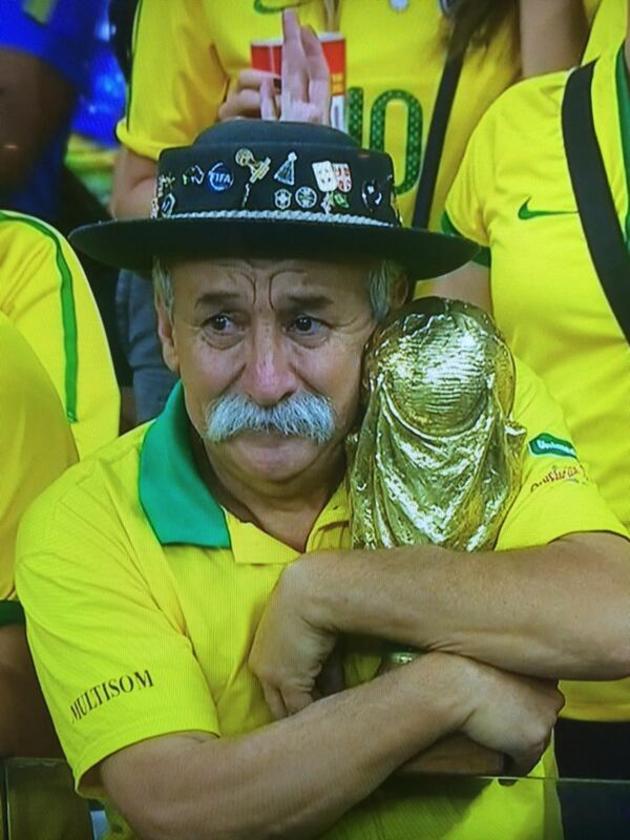EspañolHow can we not write about soccer these days, with everything still vibrating from the emotion of the World Cup? Living in Europe, I would say I’ve watched the World Cup. In Latin America, however, home to the Church of Maradona, it must be said they have lived the tournament.
Ancient history has demonstrated the relationship between politics and large sporting spectacles. Panem et circenses, bread and circus, was the recipe used by the Roman Republic to keep the masses satisfied and docile. On the other hand, many of the pre-Columbian peoples of Mesoamerica played a similar ball game — a sport of great political and ritualistic significance that finished in human sacrifice — literally a game of life or death.
The intimate relationship between political conflict and soccer defeat has been masterfully told by journalist and reporter Ryszard Kapuscinski in his book The Soccer War. It describes the four-day armed conflict between Honduras and El Salvador after their qualifier match for the 1970 World Cup .
Soccer is not, and has never been, a mere game. Soccer, as the sociologist Norbert Elias explains, brings together elements of conflict, struggle, and violence, but also solidarity, honor, and teamwork. In short, it is a perfect blend of war and cooperation — a game that appears to be a sublimation of the atavistic and innate impulses of mankind.
The political class understands this and exploits the powerful force behind this sport. The World Cup in Brazil, set against the backdrop of a prolonged economic slowdown, inflationary problems, and the upcoming presidential election, became a political marketing gamble for the government of President Dilma Rousseff, who seeks reelection in October.
The gamble was in the spectacle, the emotion, the leisure, but also in the way the country vented the visceral tensions and social pressures that have built up in Brazil with seemingly unstoppable force.
As Jean Paul Sartre said in his characteristically existentialist tone: “In football everything is complicated by the presence of the opposite team.” The president was preparing for the political dividends of the highly anticipated victory of the Brazilian national team, hoping it would appease the protests and the public’s visible discontent. Then, on July 8, the unthinkable happened. The host nation suffered a defeat against the Germans unlike any ever before seen. They also failed to secure even a third place finish in the tournament when matched against the Dutch.

The problem is, according to the Roman motto, the circus of the World Cup did not bring glory to Brazil — and the bread it produced was not sufficient either. Brazilian society grew, it matured, and is much more empowered and conscious of political actions.
However, when I looked at those fantastic facilities, characteristic of a winning and leading nation, of an ambitious, modern, and strong Brazil ready to meet FIFA’s high expectations, I could not avoid thinking about the other side of the World Cup. The other side of the coin is a parallel Brazil: the fourth most unequal Latin-American country, where more than a quarter of the urban population lives in favelas (subject to a violent “pacification process” before the games), and where the homicide rate reached its highest level since 1980.
Today, Brazilians expect much more from politics than a mere spectacle. While the government assumed the astronomical and highly controversial cost of about US$14 billion — more than an 80 percent funded by the state — the people took to the streets to protest rising prices, poor education and housing, lack of social mobility, and corruption.
The huge organizational costs, lack of transparency, and rumors of crony political-business ties contrasted with Rousseff’s supposed social objectives of reducing inequality and extreme poverty.
Will this defeat at the World Cup have an adverse effect on the immediate political course, the leadership of the Workers’ Party, and the results of the presidential election? That all remains to be seen. Leading up to the World Cup, however, the public’s disapproval of the tournament went hand in hand with the government’s disapproval rating, which should by now be imploding.
Given this uncertain scenario, I can only say that I consider myself a fan of the people, and a fan of the Brazilians.
 Versión Español
Versión Español












